Understanding Arabic Verb Conjugation: Past, Present & Future

If you’re starting your journey into the Arabic language, you’ll quickly notice that Arabic verb conjugation plays a central role in constructing meaning. Whether you’re expressing something that happened yesterday, something happening now, or something that will happen in the future, understanding how to conjugate Arabic verbs correctly is essential.
In this comprehensive guide, we’ll explore Arabic verb conjugation across the past, present, and future tenses, making it easier for you to grasp patterns, recognize root systems, and speak more confidently. Plus, we’ll share how Al Arabiya Institute can help you master verb conjugation through affordable, professional online courses with free trial lessons.
What is Arabic Verb Conjugation?
Arabic verb conjugation refers to the process of changing the form of a verb to indicate tense (past, present, future), subject (who is doing the action), gender, and number (singular, dual, plural).
Unlike English, Arabic is a root-based language. This means that most Arabic words—including verbs—are derived from a set of three (sometimes four) consonants known as the root (الجذر).
For example, the root k-t-b (كتب) relates to writing:
-
كَتَبَ (kataba) – he wrote
-
يَكْتُبُ (yaktubu) – he writes
-
سَيَكْتُبُ (sayaktubu) – he will write
The beauty of Arabic verb conjugation lies in its consistency. Once you learn the conjugation patterns for the common forms, you’ll be able to apply them to thousands of verbs.
Why is Arabic Verb Conjugation Important?
Mastering Arabic verb conjugation allows you to:
-
Express time accurately (past, present, future)
-
Agree with the subject in gender and number
-
Communicate clearly and effectively
-
Understand texts and conversations with precision
Whether you’re learning Arabic for academic, religious, professional, or personal reasons, verb conjugation will be a constant companion on your language-learning journey.
The Three Tenses in Arabic Verb Conjugation
1. Past Tense (الماضي)
The past tense in Arabic is the most straightforward. It’s formed by attaching suffixes to a base verb stem derived from the root.
Let’s take the verb كَتَبَ (kataba) — he wrote:
| Person | Arabic | Pronunciation | Translation |
|---|---|---|---|
| I | كَتَبْتُ | katabtu | I wrote |
| You (m) | كَتَبْتَ | katabta | You wrote |
| You (f) | كَتَبْتِ | katabti | You wrote |
| He | كَتَبَ | kataba | He wrote |
| She | كَتَبَتْ | katabat | She wrote |
| We | كَتَبْنَا | katabnā | We wrote |
| They (m) | كَتَبُوا | katabū | They wrote |
| They (f) | كَتَبْنَ | katabna | They wrote |
Once you know the past tense conjugation of a regular verb, you can use that pattern with thousands of verbs.
💡 Pro Tip: At Al Arabiya Institute, our expert teachers use pattern-based instruction to help you memorize and internalize past tense forms effectively.
2. Present Tense (المضارع)
The present tense in Arabic uses prefixes and suffixes. The base form often starts with يَ (ya), تَ (ta), أَ (a), or نَ (na) depending on the subject.
Let’s see how يَكْتُبُ (yaktubu) — he writes — changes:
| Person | Arabic | Pronunciation | Translation |
|---|---|---|---|
| I | أَكْتُبُ | aktubu | I write |
| You (m) | تَكْتُبُ | taktubu | You write |
| You (f) | تَكْتُبِينَ | taktubīna | You write |
| He | يَكْتُبُ | yaktubu | He writes |
| She | تَكْتُبُ | taktubu | She writes |
| We | نَكْتُبُ | naktubu | We write |
| They (m) | يَكْتُبُونَ | yaktubūna | They write |
| They (f) | يَكْتُبْنَ | yaktubna | They write |
Present tense verbs in Arabic can also indicate ongoing actions and habits. That’s why understanding present tense is crucial for everyday conversation and comprehension.
3. Future Tense (المستقبل)
Arabic forms the future tense by adding the prefix “سَ” (sa-) or “سَوْفَ” (sawfa) before the present tense verb.
Using the verb يَكْتُبُ (yaktubu) again:
-
سَيَكْتُبُ – he will write
-
سَتَكْتُبُ – she will write
-
سَأَكْتُبُ – I will write
The meaning stays the same with both سَ and سَوْفَ, but سَ is more commonly used in speech due to its brevity.
💡 Students at Al Arabiya Institute benefit from interactive exercises that help them practice future tense scenarios such as making plans, setting goals, and predicting outcomes.
Arabic Verb Forms (الأوزان)
Arabic verbs come in different patterns known as forms or “awzān” (أوزان). These patterns modify the meaning of the root.
Here are a few examples:
| Form | Pattern | Example | Meaning |
|---|---|---|---|
| I | فَعَلَ | كَتَبَ | He wrote |
| II | فَعَّلَ | دَرَّسَ | He taught intensively |
| III | فَاعَلَ | شَارَكَ | He participated |
| IV | أَفْعَلَ | أَسْلَمَ | He submitted |
| V | تَفَعَّلَ | تَعَلَّمَ | He learned |
| VI | تَفَاعَلَ | تَشَارَكَ | He shared mutually |
Understanding these forms enhances your vocabulary and helps with guessing verb meanings in context.
Our Arabic verb conjugation courses at Al Arabiya Institute include in-depth lessons on these forms, complete with real-life examples and exercises.
Common Irregularities in Arabic Verb Conjugation
While most verbs follow predictable patterns, some are irregular:
-
Hollow verbs (الأجوف): Middle root is a weak letter (e.g., قَالَ – he said)
-
Defective verbs (الناقص): Last root is a weak letter (e.g., دَعَا – he invited)
-
Assimilated verbs (المثال): First root is a weak letter (e.g., وَعَدَ – he promised)
These verbs have special rules, especially in the present and future tenses.
But don’t worry — with the structured guidance from Al Arabiya Institute, you’ll learn to recognize and conjugate irregular verbs just like the regular ones.
Tips for Mastering Arabic Verb Conjugation
Here are a few proven strategies:
-
Focus on patterns – Don’t memorize random verbs. Learn the conjugation templates.
-
Practice daily – Use verbs in speaking and writing consistently.
-
Use flashcards and apps – Reinforce conjugation with interactive tools.
-
Immerse yourself – Watch Arabic videos, read simple texts, and listen to Arabic podcasts.
-
Get expert help – Enroll in guided online courses.
One of the best platforms to learn Arabic verb conjugation effectively is Al Arabiya Institute. Our online Arabic courses are tailored for beginners to advanced learners, focusing on real usage, and taught by native speakers with years of experience.
Why Choose Al Arabiya Institute?
At Al Arabiya Institute, we specialize in teaching Arabic to non-native speakers through:
-
Structured and personalized Arabic verb conjugation lessons
-
Native-speaking instructors with extensive teaching experience
-
Affordable pricing to suit all budgets
-
A free trial lesson to get started risk-free
-
Focus on all 4 skills: reading, writing, listening, and speaking
-
Practical and Islamic Arabic options available
Whether you’re learning Arabic for travel, career, Islamic studies, or personal growth, our institute provides the guidance and support you need.
Final Thoughts
Understanding Arabic verb conjugation is a major milestone in your journey to fluency. Once you grasp the mechanics of the past, present, and future tenses, the Arabic language starts to unfold with beauty and clarity.
Don’t let the complexity of conjugation overwhelm you. With the right method, consistent practice, and expert support, you can master it with confidence.
Ready to take your skills to the next level?
👉 Visit Al Arabiya Institute today and sign up for a free trial lesson. Explore why we’re one of the best platforms for learning Arabic online, offering unmatched quality and prices.








